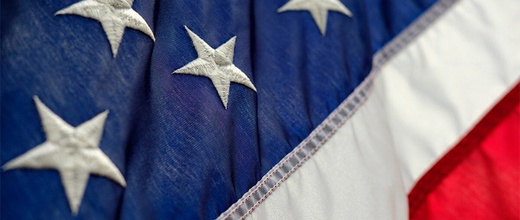Racism stands as an unequivocal blight on societal progress, weaving itself into the very fabric of America’s history. Within the conceptual framework of the Bahá’í teachings, the understanding of racism transcends mere prejudice and discrimination; it emerges as a profound spiritual malady that jeopardizes the essence of human unity. This article endeavors to delve into the intricate layers of racism as illuminated by Bahá’í principles, raising a thought-provoking question in the process: How do we, as a society, commit ourselves to dismantling the pernicious structures of racism while fostering a genuine sense of unity?
At the heart of Bahá’í teachings lies the concept of the oneness of humanity. This principle asserts that all individuals, irrespective of race, ethnicity, or background, are inherently equal and deserving of dignity. The Bahá’í Faith teaches that humanity belongs to a singular family, emphasizing that any distinctions drawn based on race are artificial constructs. This premise invites a deeper contemplation on the implications of racism: How does this unarticulated and widespread challenge hindrance the realization of a harmonious global community?
The historical context of racism in America is pivotal to understanding its contemporary ramifications. From the era of colonialism to the systemic injustices that persist today, racism has woven itself into governmental, social, and economic structures. The Bahá’í teachings contend that these entrenched systems must be addressed holistically, recognizing that mere legislative reform is insufficient without a corresponding transformation in individual consciousness and community attitudes. This dual approach—legislative and interpersonal—underscores the scope of the challenge at hand.
Engaging in an examination of racial prejudice within the context of a Bahá’í framework requires confronting the manifestations of racism that pervade everyday life. These manifestations can take many forms, including overt acts of discrimination, microaggressions, and the insidious assumptions that underpin societal norms. Notably, the Bahá’í teachings admonish against not only overt actions but also the quieter biases that may reside unconsciously within individuals. How can we cultivate an awareness of such biases, and subsequently, how can we transform awareness into action?
Education emerges as a vital tool in combatting racism, as espoused within the Bahá’í teachings. Through the lens of education, individuals can foster a clearer understanding of the interconnectedness of all peoples. Furthermore, education serves to dismantle the misconceptions that fuel racial animosity. Baha’is are encouraged to actively pursue knowledge and understanding, leading to more informed and compassionate perspectives on race. This imperative raises an essential inquiry: What role does education play in reshaping our collective narrative surrounding race in America?
In contemplating solutions, the Bahá’í Faith prioritizes the importance of community building. By fostering diverse and inclusive communities, individuals can engage in genuine dialogue that bridges divides, thereby undermining the foundations of racism. The act of coming together in this manner transcends superficial tolerance; it seeks to foster authentic relationships among people of varying backgrounds. What strategies can communities implement to ensure that they are not only diverse but also effectively nurturing an ethos of belonging and acceptance?
Moreover, the concept of service to humanity is deeply ingrained in the Bahá’í teachings. This principle extends beyond charitable acts to encompass a broader commitment to social justice. Engaging in service-oriented initiatives can serve as a catalyst for both personal growth and communal healing. Organizations rooted in these teachings emphasize that through service, individuals can confront the social illness of racism head-on. How can we refocus our motivations for service to include the eradication of racism as a foremost priority?
The relationship between the individual and the collective also merits consideration within this discourse. The Bahá’í teachings underscore that the spiritual development of individuals is inherently linked to the wellbeing of society at large. Addressing racism thus becomes a spiritual imperative; individuals are called to cultivate virtues such as love, justice, and compassion, which can collectively erode the foundations of racial prejudice. This relationship prompts an inquiry into personal responsibility: In what ways can each person cultivate their virtues in order to combat racism effectively?
Furthermore, it is crucial to recognize the systemic nature of racism; it is not solely an individual affliction but one that is perpetuated by institutions and systems. The Bahá’í teachings advocate for a transformative change within societal structures, encouraging adherents to engage in advocacy that aligns with the principles of equity and justice. It raises a pertinent question: To what extent can systemic reform be achieved without the active participation and commitment of individuals across all strata of society?
In conclusion, addressing the challenge of racism demands an interdisciplinary and multifaceted approach. The Bahá’í teachings offer profound insights into the elimination of racism, emphasizing the necessity for both personal and collective transformation. As America grapples with its ambivalent history regarding race, the teachings invite individuals to engage in introspective examination and active participation in promoting justice and unity. Consequently, the pivotal question remains: Are we prepared to undertake this monumental task of unity in diversity, to confront the large-scale challenge of racism and move toward a cohesive society embracing the oneness of humanity?
